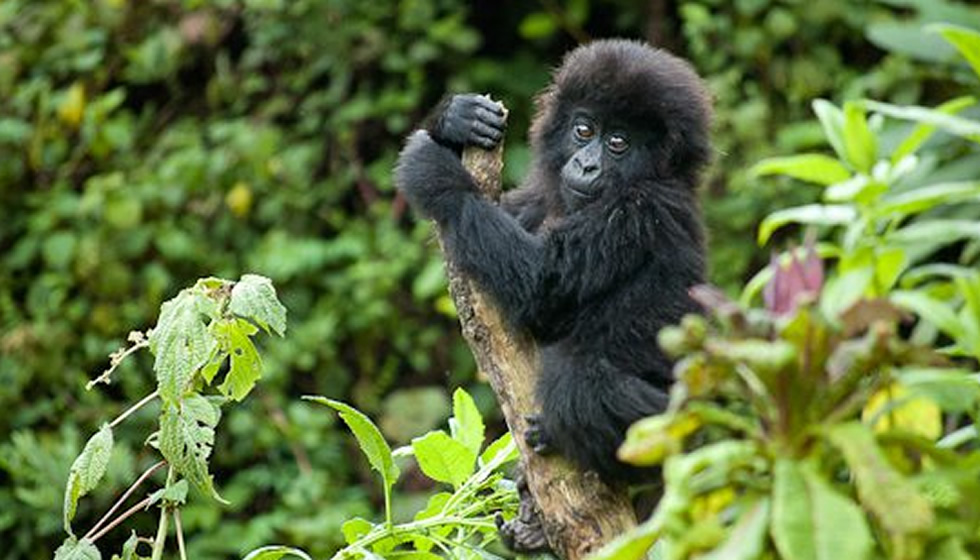Nothing is hard to plan and accomplish and planning an independent trip is one of them. Traveling alone is not a new trend of travel and tourism what makes it re-emerge as a new trend is the increase in number of solo travelers especially among the young generation because of the affordability, accessibility and smart travel among other travel and tourism trends. Many travelers today are looking to gorilla trekking in Uganda. Planning a gorilla safari is not so much different to planning a normal Ugandan tour.
Such trends also make planning an independent trip easier for one person than it would be for 2 or more people.
An independent Uganda trip plan unfolds when you bring together all the elements of a tour of your own interest. For instance consider places/destinations you want to visit, the travel insurance, visas and air tickets, duration of the trip, nature of activities, accommodation and food, transport, attractions and local guides.
Basing on some of your preferred trip highlights, you start to organize the best options available to you in accordance with the budget for the whole trip for its time to enjoy money you had earlier saved.
Note, however, you want to plan a trip on your own given the smart travel apps that provide customized and reviews of successful solo travelers, it has encouraged many single travelers offering them more and more information about the best places to see, eat and sleep from by just a clique of mouse. This does not exclude the use an operator or consultant to do some tasks such as inquiring about the possibilities of sharing accommodation with other travelers in case you do not want to the single supplement option which tends to be expensive.
Here are some tips how you can figure out to plan a trip independently:-
Travel during the low season. Depending on your trip budget and capacity to meet all travel related costs. In contrast to the high season when prices of tourism products are high due to high number of tourists and demand, the low season on the other hand, the low season comes with discounted packages, a great way to save money.
Tourist numbers are few at some tourist places during low season; hence most accommodations, attractions and activities are discounted to attract demand. For instance a trip to destination East Africa which include countries like Uganda, Kenya and Rwanda is worth to undertake during low season because of the low priced bucket list adventures such as big five mammal safaris, mountain gorilla trekking, water based spots, bird watching, mountaineering and hiking, primate tracking, cultural encounter, the African cuisines and friendly people are thrown in as a bonus.
Make research and read all the essential information about the places you want to visit. Look for the best travel guide books or magazines such as Bradt, Lonely Planet and Africa geographic. Try to read and familiarize yourself with services, modes of transportation you want to use and facilities at a destination. Use smart travel apps like trip advisor, apple watch and Google which notifies travel users about the attractions within surrounding areas nearby best hotels and restaurants and locating places using global positioning system. This helps you to make customized choices that suit your personal interests making your independent trip more enjoyable.
Prepare your safari packing and luggage in advance depending on the weather conditions experienced in the places you want to go to and the nature of activities you intend to do. Find out whether you need to hire or buy equipment. East Africa as an example has warm tropical weather most of the year and experiences both the wet season (April, May, November) and dry seasons in December, February, June and September.
Develop an itinerary and make a budget basing on the general cost of your trip. This includes class of accommodation, transportation, food, activities, guides and shopping needs after getting real price quotes from your consultant. Your itinerary should stay flexible in case you want to add or combine activities that you had not planned earlier.
When you have drafted the budget for your itinerary, make some bookings in advance. Find out whether you need to book online or direct in person. Bookings must be time specific to consider possible transport delays which can otherwise alter the whole trip plan; whether it’s a flight or a safari vehicle used, you should arrive at places of your interest on time to avoid disappointments.
Depending on the preferences of a traveler, some prefer to stay in low budget accommodation such as home stays, camp, hostels while maximizing on good food. Consider to stay at a place where there are lots of optional activities such as community visits or attending an event in cities so that it’s easier to transfer between the those places/attractions.
Get all the relevant travel resources at hand before the actual traveling. For instance travel insurance, special personal medical needs, guide books, passports, visas, identity cards, route maps and proper clothing. Remember to take heed of safety precautions, avoid moving alone at night.
Start traveling to your destination of interest. As you travel you are advised to consider logistics that will sustain you always when traveling between places. This depends on whether you have several stopovers or not. Use your route maps or GPS to keep note of the roads and be security cautious with your identification documents.
Once you have reached your destination, hire a guide or join other groups of tourists depending on whether you want guided or self guide tours. Guided tours increases your chances of learning, spotting wildlife or sightseeing that you may not do on your own once you are at the destination.
Keep your safari luggage as light as possible. You do not need a heavy backpack which also often times may not comply with the standard luggage limit of vehicles or aircraft. Zip lock soft travel bags are recommended plus good a day’s pack to keep your personal items like passports, identity cards and camera equipment.
As an independent traveler, there’s a responsibility of embracing and respecting local cultures which in turn is a learning experience. Some cultures are totally different from those of your country of origin hence it’s better to be flexible and open mined so that you are not perceived as a stranger which can result into conflicts. You got to interact and familiarize yourself with locals which part and parcel of the whole experience.
Travel responsibly by minimizing damage on the environmental. Always choose environmental friendly activities or by buying local products which contribute to the local community development. You need to also choose tour operators, accommodations with sound corporate responsibility.


